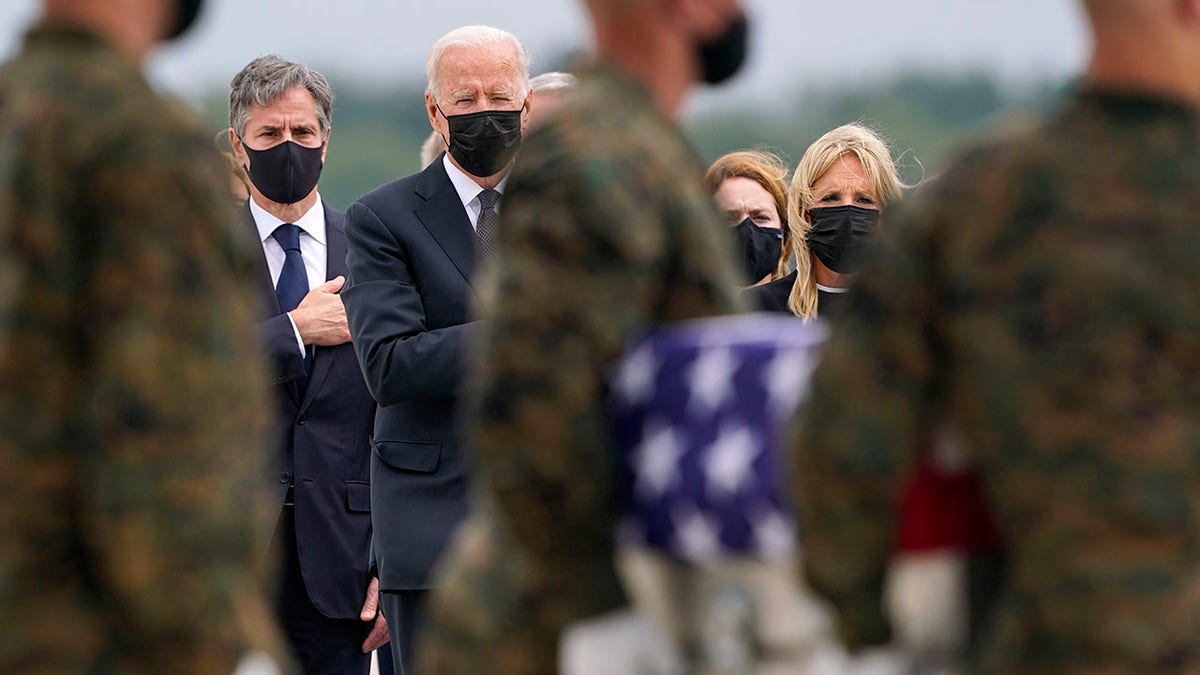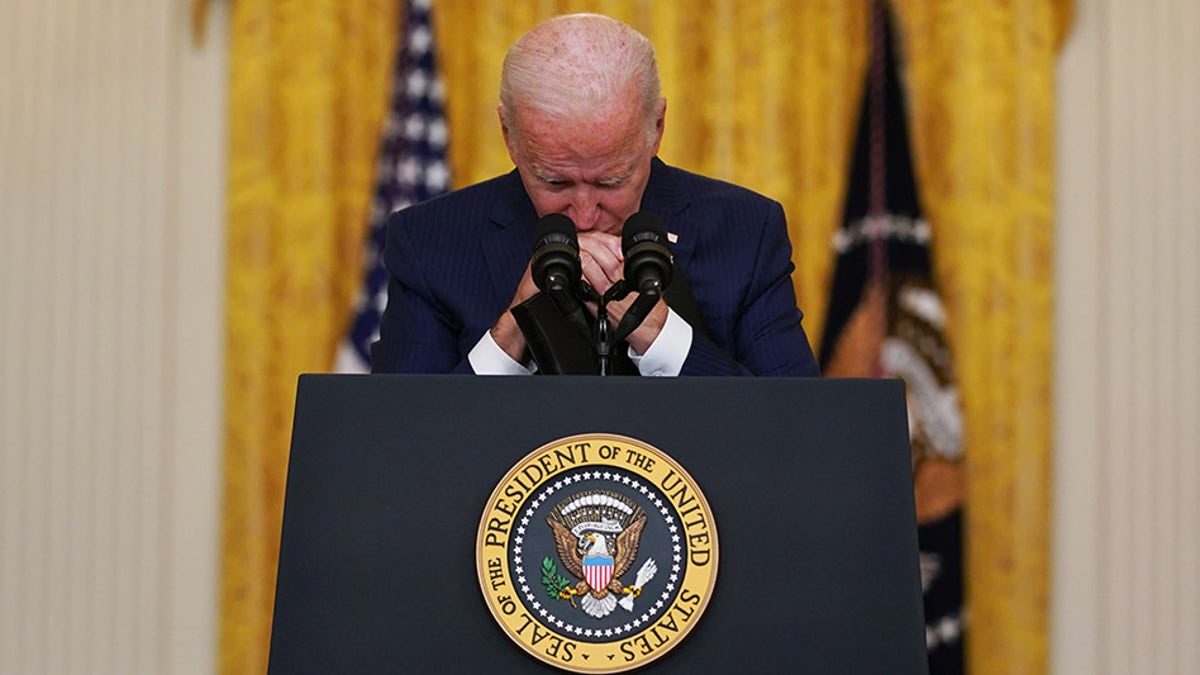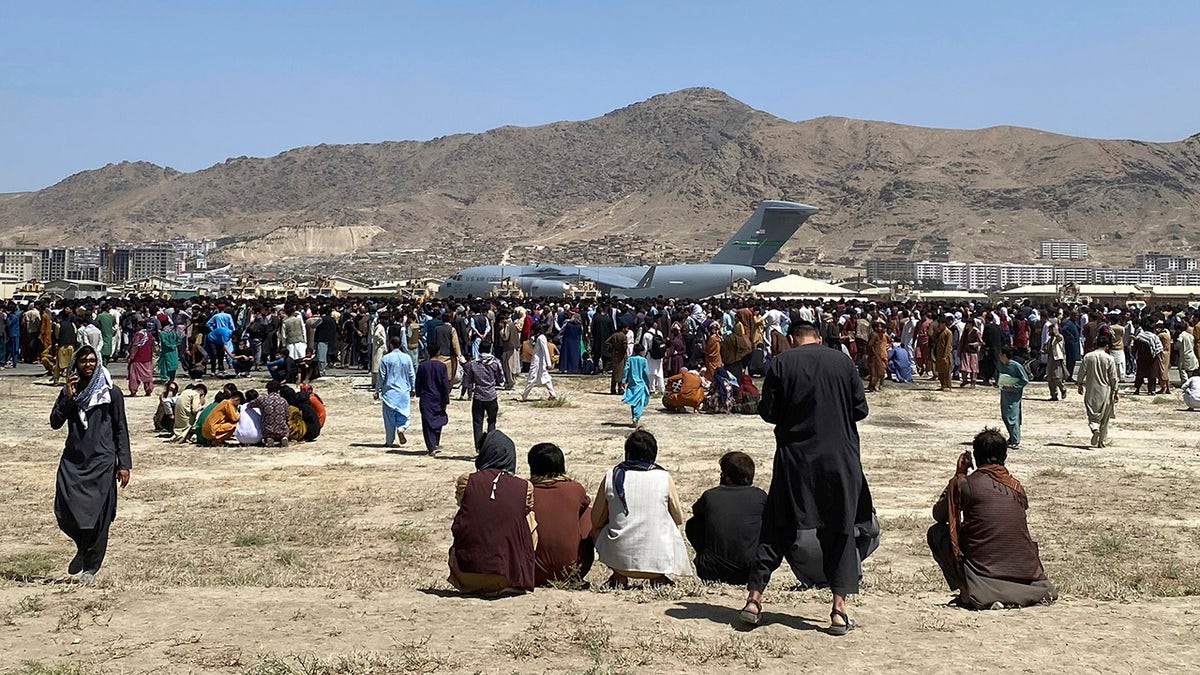White House official is asked why Biden admin taking no responsibility for Afghanistan debacle
National Security Council spokesman John Kirby on Thursday was asked why the Biden administration is taking no responsibility for the Afghanistan withdrawal debacle.
The White House on Thursday released its review of President Biden's fumbled withdrawal from Afghanistan in 2021, dropping the long-awaited report days before the Easter holiday while former President Donald Trump's indictment dominates headlines.
In a 12-page outline, Biden officials defend the president's decision to withdraw, calling his decision to end the two decades-long war "the right thing for the country." The report does not appear to acknowledge any mistakes made by Biden. However, the document repeatedly criticizes the Trump administration for constraining the conditions of American evacuation, during which 13 American soldiers died in a suicide bombing while protecting the Kabul airport.
The review does acknowledge that the evacuation of Americans and allies from Afghanistan should have started sooner, but blames the delays on the Afghan government and military, and on U.S. military and intelligence community assessments.
"President Biden’s choices for how to execute a withdrawal from Afghanistan were severely constrained by conditions created by his predecessor," the document states.

President Biden, first lady Jill Biden and Secretary of State Antony Blinken look on as a carry team moves a transfer case with the remains of Marine Corps Cpl. Humberto A. Sanchez, 22, of Logansport, Ind., during a casualty return at Dover Air Force Base, Delaware, on Aug. 29, 2021, for the 13 service members killed in the suicide bombing in Kabul, Afghanistan, on Aug. 26. (AP Photo/Carolyn Kaster)
The White House accuses Trump of emboldening the Taliban by engaging in peace talks without consulting U.S. allies and partners in the region. The document emphasizes that at the same time, Trump was decreasing the U.S. military presence in Afghanistan with a series of drawdowns throughout 2020.
"During the transition from the Trump Administration to the Biden Administration, the outgoing Administration provided no plans for how to conduct the final withdrawal or to evacuate Americans and Afghan allies," the White House says. "Indeed, there were no such plans in place when President Biden came into office, even with the agreed upon full withdrawal just over three months away."
The U.S. withdrawal from Afghanistan precipitated the disastrous collapse of the Afghan National Security Forces and the Taliban's takeover of Kabul on Aug. 15, 2021. Biden oversaw evacuation efforts for U.S. allies, translators and Afghan refugees considered at risk of retribution from the radical Islamist forces overtaking the country. Nearly 1,000 American citizens were left behind and later evacuated. Thousands of Afghan allies remain in the country.

President Biden delivers remarks on the terror attack at Hamid Karzai International Airport in Kabul Afghanistan, and the U.S. service members and Afghan victims killed and wounded in the East Room of the White House in Washington, D.C., on Aug. 26, 2021. (POOL via CNP/INSTARimages/Cover Images)
The document released by the White House gives a broad overview of the administration's actions and recounts the details of the Afghanistan withdrawal from their perspective.
"As you all know, over these many months, departments and agencies key to the withdrawal conducted thorough internal after-action reviews, each of them examining their decision-making processes, as well as how those decisions were executed," White House national security spokesman John Kirby said Thursday.
"Today, they are making those reviews available to relevant committees in the Senate and in the House, as previewed by Secretaries [Antony] Blinken and [Lloyd] Austin in testimony last month," he added.
By the time Biden assumed office, the White House says, "the Taliban were in the strongest military position that they had been in since 2001, controlling or contesting nearly half of the country."
"While it was always the president's intent to end that war, it is also undeniable that decisions made and the lack of planning done by the previous administration significantly limited options available to him," Kirby told reporters at Thursday's White House press briefing.
"President Biden inherited a force presence in Afghanistan of some 2,500 troops. That was the lowest since 2001. He inherited a special immigrant visa program that had been starved of resources. And he inherited a deal struck between the previous administration and the Taliban that called for the complete removal of all U.S. troops by May of 2021, or else the Taliban, which had stopped its attacks while the deal was in place, would go back to war against the United States."

Hundreds of people gather near a U.S. Air Force C-17 transport plane at a perimeter at the international airport in Kabul, Afghanistan, on Aug. 17, 2021. (AP)
Kirby said the Trump administration failed to provide any plans to remove U.S. troops, to transition security to the Afghan government or to increase processing for special immigrant visas for Afghan allies.
"Transitions matter. That's the first lesson learned here. And the incoming administration wasn't much of one," he said. "Thus, President Biden's choice was stark: either withdrawal of our forces or resume fighting with the Taliban. He chose the former."
READ THE WHITE HOUSE REVIEW BELOW. APP USERS, CLICK HERE
The Associated Press contributed to this report.















































